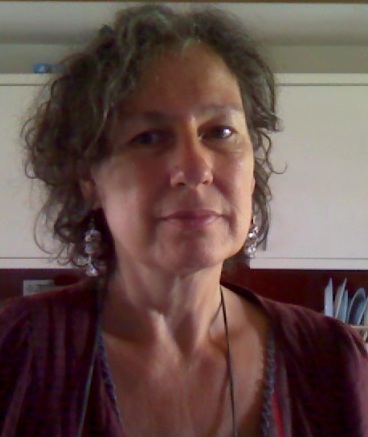
Professor Diana Jeater DPhil (Oxon); FRHistS
Professor of African History History
- Work email Diana.Jeater@liverpool.ac.uk
- About
- Research
- Publications
- Teaching
- Professional Activities
Research
Ngozi spirits in Zimbabwe: taking belief seriously
I am currently working on a project that uses spirit beliefs as a lens through which to trace histories of justice, reconciliation and human rights. It explores ideas and practices about spirits, violence, human rights and justice across a century of Zimbabwean history, 1890-1990.
Elements of this research are funded by the British Academy’s Heritage, Dignity and Violence Programme, supported under the UK Government's Global Challenges Research Fund. https://www.thebritishacademy.ac.uk/projects/heritage-dignity-violence-spirits-peace-recovering-zimbabwes-heritage-traditional-reconciliation-systems-todays-peacemakers.
Ngozi spirits work on behalf of the dead to put right outstanding wrongs against the deceased. In contemporary Shona societies in Zimbabwe, they are invoked in trauma healing, providing a way to express post traumatic stress disorder. They can also provide a powerful framing for grassroots critiques of economic conditions, and are frequently invoked when people experience rises in death, mental health problems and infertility.
But the meaning and understandings of ngozi spirits have changed over time. For example, these days people say that the only way to settle an ngozi spirit is to give a woman as wife to the family of the deceased. That wasn't so in the past. Tracing the histories of ngozi beliefs reveals changing practices and constant reinventions of 'tradition'.
This project will produce a history of ngozi spirits from the late nineteenth century to the present, showing how spirits, politics, family and mental health have always been entwined, and why attention to these spirits is fundamental to understanding community conflict today.
See publications list for published work on this project. Unpublished conference papers on this project include:
'Witchcraft, "Smart Power" and the Meaning of Human Rights: a Preliminary Foray into the History of Indigenous Human Rights Discourses in Zimbabwe',
10th Northeastern Workshop on Southern Africa, Burlington, VT, USA, 22nd October 2011.
'Chopping Away at the Opposition: Witchcraft and Political Violence in Zimbabwe’s History', 54th Annual Meeting of the African Studies Association, Washington, DC, USA , 17th November 2011.
‘Human Rights and Inhuman Violence in Zimbabwe: Seeking an Interface between Secular and Spiritual Discourses of Humanity’, African History & Politics Seminar, Department of International Development, University of Oxford, 6th February 2012
‘Chimeras and chameleons: legacies of physical and epistemic violence in Zimbabwe’, Genealogies of Colonial Violence Conference, Centre for South Asian Studies and Centre for African Studies, University of Cambridge, 1st- 2nd June 2012.
‘Beyond Truth and Justice: spirit-led reconciliation at the grassroots in post-crisis Zimbabwe.’ Centre for Postgraduate Quaker Studies, Birmingham, UK, 26th June 2013
‘The reinventions of witchcraft in Zimbabwe: prosecution and persecution 1890-2015,’ Goldsmiths College, London, 24th February 2016
‘Evidence of Due Process in African Prosecutions of Witches in Southern Rhodesia in the early 20th century’, Worlds of Witchcraft: Comparing African and European Histories of the Occult symposium, QMUL, 30th March 2016
‘A European obsession with vengeance: reclaiming ngozi spirits from the ethnographic record’, 59th Annual Meeting of the African Studies Association, Washington, DC, USA , 1st Dec 2016
'Contestations over Traditional Reconciliation in Zimbabwe', North Eastern Workshop on Southern Africa, Burlington, Vermont, USA, 27th April 2019
https://www.thebritishacademy.ac.uk/projects/heritage-dignity-violence-spirits-peace-recovering-zimbabwes-heritage-traditional-reconciliation-systems-todays-peacemakers/
Decolonising the Academy
Questions about how knowledge is generated and validated within the academy underpins all my work. When I completed my doctorate, I had spent a total of 15 months in Zimbabwe in my life, and yet I was being presented as a global 'expert' on Zimbabwe, while academics from Zimbabwean institutions were largely ignored on the global stage. The absurdity of this situation led me to start asking questions about how 'expertise' about African issues is created and recognised.
Rethinking Area Studies: Decolonising the Academy
Lead academic in a three-year international project by Taylor & Francis Area Studies Journals Team team to assess the changing perceptions of ‘area studies’ as a field of academic research, and also as an ontological category
• Invited Participant: ‘The Future of Area Studies: Raising Global Voices’, Taylor & Francis roundtable, SOAS, London, November 2017
Interviewed for a video for T&F training, on what decolonising Area Studies might mean.
• Co-convenor: ‘JSAS Emerging’ conference and writing workshop, Chancellor College, Zomba, Malawi, July 2018
The first of a series of annual mentoring and writing workshops for scholars in the region to ‘think from the South’, partly funded by T&F as part of their Rethinking Area Studies initiative
Ran a Keynote plenary session on ‘De-colonising (Southern) African Studies’
• Invited Panel discussant: ‘Challenges in supporting and mentoring early career researchers in the Global South’, Panel co-sponsored by T&F Area Studies, African Studies Association UK biennial conference, Birmingham, Sept 2018
• Invited Chair: ‘New Directions in Area Studies’, two Taylor & Francis-sponsored roundtables with twelve eminent speakers from across the Global South, ‘Africa-Asia: a New Axis of Knowledge’, Dar es Salaam, Tanzania, September 2018.
“We would like to express sincere thanks to Professor Diana Jeater (University of Liverpool) for her professional and enthusiastic chairing of both sessions; without Professor Jeater’s interest and commitment these sessions would not have taken place.” – Elizabeth Walker, Head of Area Studies, Routledge, Taylor & Francis, https://www.iias.asia/sites/default/files/nwl_article/2019-05/IIAS_NL82_10-1.pdf
• Panel presenter: ‘Thinking Area Differently: the “region” and the “academy” in southern African studies’ Area Studies in Flux conference, UCL, London, Sept 2018
• Convenor: Decolonizing African Studies panel series, African Studies Association annual meeting, Atlanta, GA, USA, December 2018.
A series of three panels bringing together publishers and academics to reflect on how ‘African Studies’ as a concept and practice is rooted in colonial frameworks of thought, and what responses this requires.
Panel presentation: ‘Displacing the Canons of Academic Excellence in Southern African Studies’
• Panel presenter: ‘Rethinking Area Studies, Rethinking Power’, Contemporary Africas, Creative Africas: Conceptual and Methodological Advances in African Studies conference, LUCAS, University of Leeds, April 2019
Research Grants
Rethinking African Economics: reparation payments, spirit beliefs, and non-standard notions of value/exchange
BRITISH ACADEMY (UK)
July 2023 - September 2023